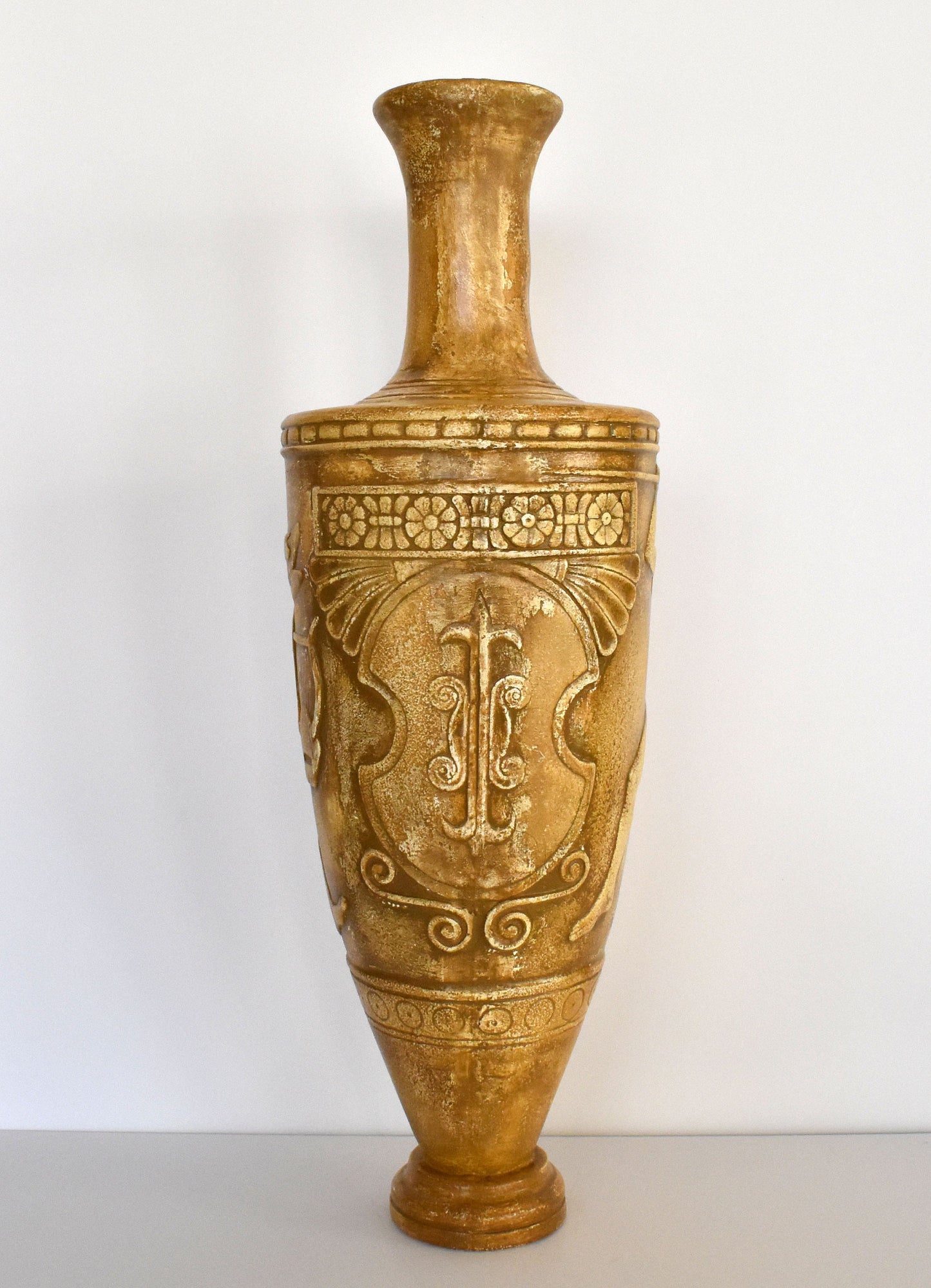Gallery Demeter
Athletes of Ancient Greek olympic Games - Lekythos - Relief - Classical Period - 500 BC - Ceramic Vase
Athletes of Ancient Greek olympic Games - Lekythos - Relief - Classical Period - 500 BC - Ceramic Vase
Regular price
€449,90 EUR
Regular price
Sale price
€449,90 EUR
Unit price
per
Tax included.
Shipping calculated at checkout.
Couldn't load pickup availability
Item Specifics
Vase Details:
Condition: New, Handmade in Greece.
Material: Clay
Height Size: 40 cm - 15,7 inches
Width: 12 cm - 4,7 inches
Length: 12 cm - 4,7 inches
Weight: 2500 g
The ancient Olympic Games were a series of athletic competitions among representatives of city-states and one of the Panhellenic Games of Ancient Greece. They were held in honor of Zeus, and the Greeks gave them a mythological origin. The first Olympic Games are traditionally dated to 776 BC. The games were held every four years, or Olympiad, which became a unit of time in historical chronologies. They continued to be celebrated when Greece came under Roman rule, 2nd century BC. Their last recorded celebration was in AD 393, under the emperor Theodosius I, but archeological evidence indicates that some games were still held after this date. The games likely came to an end under Theodosius II, possibly in connection with a fire that burned down the temple of the Olympian Zeus during his reign.
During the celebration of the games, the ekecheiria (an Olympic truce) was announced so that athletes and religious pilgrims could travel from their cities to the games in safety. The prizes for the victors were olive leaf wreaths or crowns. The games became a political tool used by city-states to assert dominance over their rivals. Politicians would announce political alliances at the games, and in times of war, priests would offer sacrifices to the gods for victory. The games were also used to help spread Hellenistic culture throughout the Mediterranean. The Olympics also featured religious celebrations. The statue of Zeus at Olympia was counted as one of the seven wonders of the ancient world. Sculptors and poets would congregate each Olympiad to display their works of art to would-be patrons.
The ancient Olympics had fewer events than the modern games, and only freeborn Greek men were allowed to participate, although there were victorious women chariot owners. As long as they met the entrance criteria, athletes from any Greek city-state and kingdom were allowed to participate. The games were always held at Olympia rather than moving between different locations as is the practice with the modern Olympic Games. Victors at the Olympics were honored, and their feats chronicled for future generations.









